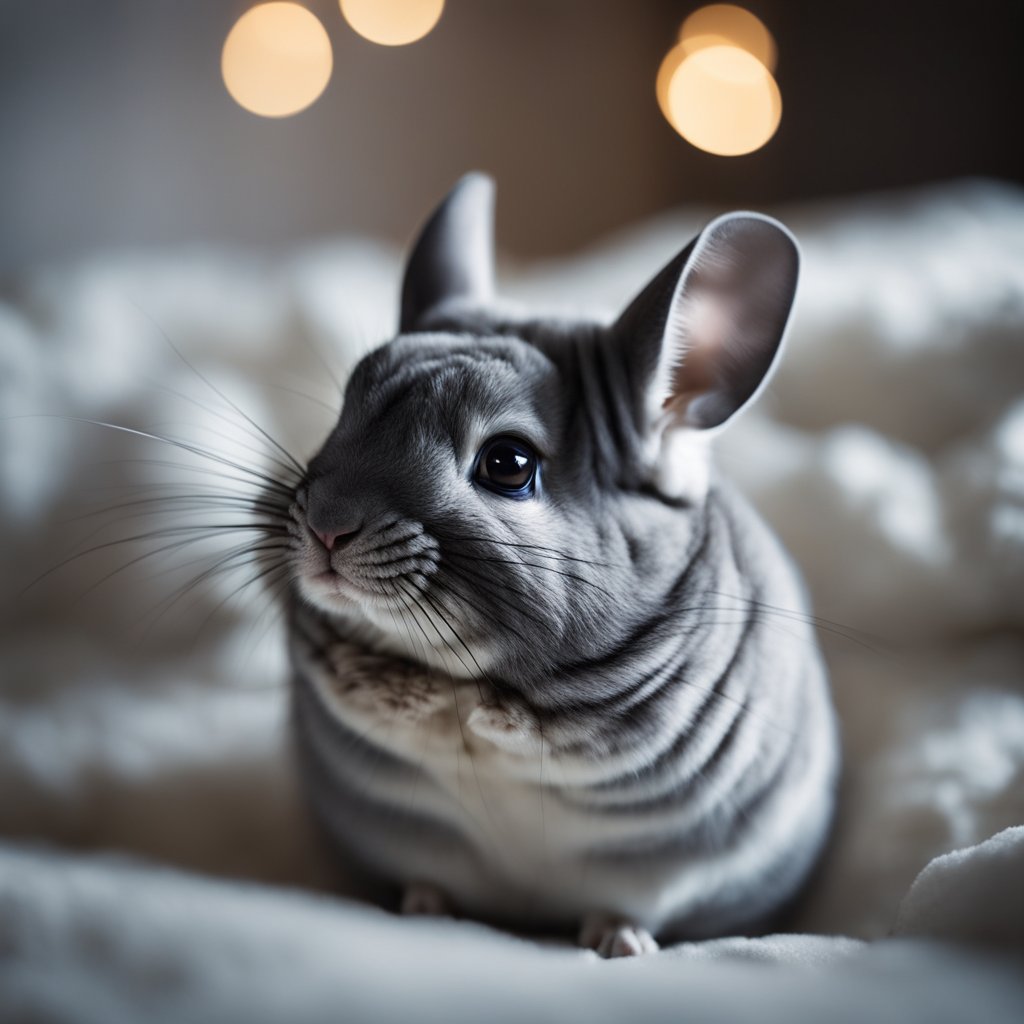Bonding with your chinchilla can be a rewarding experience that deepens your relationship with your pet. To build a strong bond, focus on gentle interactions and positive experiences. Understanding their behavior is key, as chinchillas are naturally cautious animals that thrive on trust.

Spending quality time near their cage and offering treats will help them feel secure around you. As trust develops, you can engage in more activities, like hand-feeding or gentle petting, to create a connection. This gradual approach not only enhances your bond but also improves your chinchilla’s overall well-being.
Key Takeaways
- Build trust with your chinchilla through gentle interactions.
- Understand chinchilla behavior to enhance bonding.
- Use positive experiences to strengthen your relationship.
Understanding Chinchilla Behavior

To bond effectively with your chinchilla, it’s important to know how they interact socially and what signs indicate trust and affection. Observing these behaviors can help you create a strong relationship with your pet.
Social Structure and Interaction
Chinchillas are naturally social animals. In the wild, they form groups, which helps them feel safe and secure. When you keep a chinchilla, it’s valuable to mimic this social structure.
- Living Together: If you have multiple chinchillas, ensure they bond well. Factors like gender and personality can affect their relationships.
- Interaction with You: Spend time near your chinchilla’s cage. This lets them acclimate to your presence.
Use a gentle voice and soft movements to avoid startling them. Trust builds over time as your chinchilla becomes comfortable with your routine.
Signs of Trust and Affection
When your chinchilla trusts you, they will show certain behaviors. Knowing these signs helps you gauge your bond.
- Exploration: If your chinchilla explores your hand or allows you to pick them up, this indicates trust.
- Grooming: When they groom themselves in your presence, it’s a sign they feel safe.
- Nuzzling: Chin sensitive to the touch might nuzzle against you as a form of affection.
Pay attention to their body language. A relaxed posture and calm movements suggest they are comfortable around you. Reassuring actions help strengthen this bond further.
Developing a Bond with Your Chinchilla

Building a strong bond with your chinchilla takes time and patience. It’s important to create a positive environment and establish trust through gentle interactions and play activities. By following key practices, you can enhance your relationship and ensure your pet feels safe and comfortable with you.
Creating a Comfortable Environment
Start by setting up your chinchilla’s cage to make it a cozy and secure space. Choose a suitable location away from loud noises and direct sunlight. Use soft bedding materials to ensure comfort.
Add hiding spots and chew toys to keep your chinchilla entertained. When your pet feels safe in its environment, it is more likely to approach you. Spend time near the cage without any sudden movements, allowing your chinchilla to get used to your presence.
Regular, Gentle Handling
Gentle handling is crucial in developing trust. Begin by placing your hand in the cage without trying to touch your chinchilla. Let it sniff and explore your hand.
Gradually, start to offer small treats. When it feels comfortable, you can try lifting it gently. Always support its body properly. Avoid grabbing or forcing your chinchilla; this can create fear and set back your progress.
Playtime and Exercise
Chinchillas are playful and active animals. Regular playtime helps strengthen your bond. Set aside time each day for supervised exercise outside the cage in a safe area.
Encourage exploration by allowing your chinchilla to run around while you sit nearby. Use tunnels and toys to create an engaging environment. This not only provides physical activity but also builds confidence in your presence.
Voice and Sound Familiarity
Chinchillas are sensitive to sounds and voices. Use a calm and gentle voice when talking to your pet. Regularly speaking to your chinchilla can help it recognize your voice over time.
Make soft sounds, like gentle whistles or clicks, when you are near. Consistent exposure to your voice will help your chinchilla feel more relaxed during handling and play. Avoid sudden loud noises that could startle your pet.
Treats and Positive Reinforcement
Using treats for positive reinforcement can greatly enhance your bond. Start with small, healthy snacks that are safe for chinchillas, such as timothy hay or small pieces of dried fruit.
When your chinchilla approaches you or does something positive, offer a treat. This teaches your pet that being near you or interacting can lead to good things.
Always reward positive behavior to build trust and encourage desired interactions.
Resources
To further help you bond with your chinchilla, consider reading guides on care and bonding techniques. Websites like Love My Chinchilla and Chinchilla Guru offer simple steps and detailed advice.
You can also join online communities for chinchilla owners to share experiences and tips. Access to helpful resources can deepen your understanding and improve your bond with your pet.
Frequently Asked Questions

Bonding with your chinchilla involves understanding its behaviors and needs. This section addresses common questions that can help you build a strong relationship with your pet.
What are the signs that a chinchilla is fond of its owner?
A chinchilla shows affection by approaching you, relaxing when you are near, and enjoying your company. If it nibbles on your fingers gently or seeks your attention, these are clear signs that it trusts you.
How can you encourage a chinchilla to be comfortable with being held?
Start by offering treats from your hand while sitting close to the cage. Gradually, let your chinchilla explore your hands and arms. Once it is comfortable, you can gently scoop it up, supporting its body to make it feel secure.
What social dynamics should be considered when keeping chinchillas with humans or other chinchillas?
Chinchillas are naturally social animals, which means they benefit from interaction. When introducing them to humans, ensure there are no loud noises. If having multiple chinchillas, monitor their interactions to prevent dominance issues or fighting.
How can an owner demonstrate affection to their chinchilla?
You can show affection by spending time near them, talking softly, and offering treats. Gentle grooming or allowing them to play outside their cage also helps strengthen your bond.
In what ways can you ensure a chinchilla’s happiness and well-being?
Provide plenty of space to explore, along with toys and activities to keep them engaged. Regular interaction and a consistent routine can help them feel secure and happy.
Do chinchillas form emotional attachments with their human caregivers?
Yes, chinchillas can form strong emotional bonds with their owners. Through regular handling and positive interactions, your chinchilla can learn to trust you and enjoy your presence.

